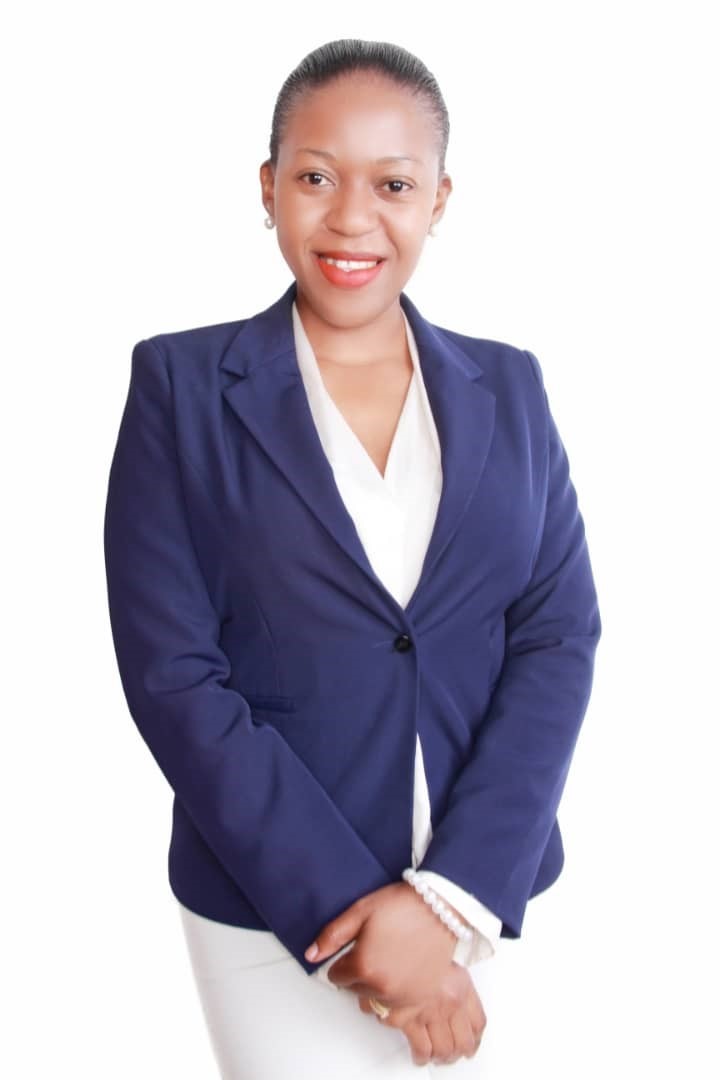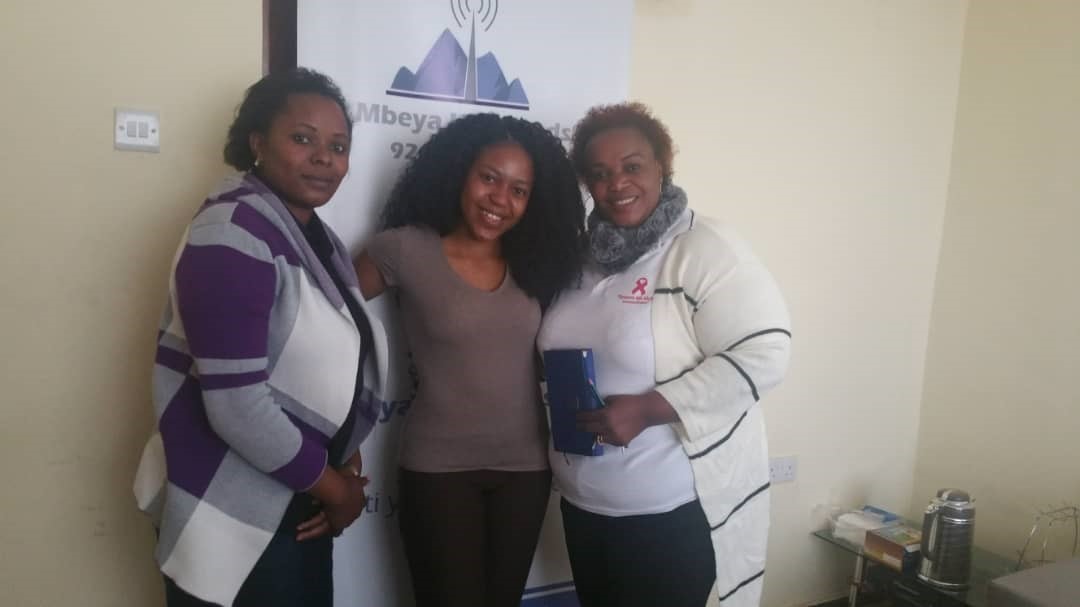Groundbreaking Workshop on AI and Technology-Facilitated Gender-Based Violence at AWiM24
Trending
Sunday June 1, 2025
Trending

Jacqueline Mwakyambiki talks to Fadhila Sadala of AWiM News about why she decided to establish Mbeya’s most popular media outlet and platform.
Growing up in Mbeya, located in the Southern West of Tanzania, Jacqueline Mwakyambiki always wanted to be a businessperson.
However, she had a passion to be a mass communicator to reach a lot of people to fight for justice and gender equality with a focus on behavioural change
“I sat down and thought the only way to make social development in progress first is to educate people on how to achieve development within the community. The first key of development is access to information,” she said. One day her dream came true when she founded Highland FM.
After secondary school, she joined the Central Institute of India, for a Diploma in Journalism and Media Studies, she joined Swadesh Institute for a Diploma in Leadership in Stockholm, Sweden then, joined the University of Notre Dame for a certificate in Business and Entrepreneurship in Indiana, US before joining Bharati Vidyapeeth University Pune in India for a Bachelor Degree in Business Administration. In 2011, she fulfilled her childhood dream of becoming a businessperson after completing business studies.
In 2020 Jacqueline joined A Vital Alumni to be a vital voice identifying women leaders with daring visions for change. Then partners with them to make the vision reality, amplifying the women leaders solving the world’s greatest challenge.
“But even though I studied Business administration, I still enjoyed collaborating with the communities by amplifying their voices, especially women and girls on gender-based violence,” she said.
“After finishing my studies, I returned to my home country Tanzania, my passion for saving and changing the society alive, I still found it successful because Mbeya at that time was still poor on social development that mostly affected girls and women,” she said.
Jacqueline works as a mass communicator start-up founder at Highland FM, her sights were on setting up a radio station in Mbeya city whose population stands at 291,649. The mission was to fight for justice and gender equality.
Driving force to come up with media
Tuesday, November 11, 2013, was a special day since a conference on climate change, was underway in Warsaw, Poland. The issue of gender and its role in climate change was widely discussed with its relationship to gender equality.
And so there was a need to represent and engage them at the dialogue level. In many parts of the world, women walk long distances in search of water and firewood.
Food and water are directly related and if a person misses any, then a quarrel between couples might ensue thus destroying many families, women are battered by their husbands.
The conference list assessed gendered aspects of the environment and good governance besides the participation of women and men in issues such as forest management, access to credit and land tenure.
“The conference brought inspiration to me with sights, strength and speed for my passion to bring social development in Mbeya city,’ she stated.
In 2013, she took part in investigative journalism programmes and forums for 5 years called “Haki Maji” that visited districts in Mbeya to highlight the lack of access to water within the region. And “Tatizo ni Nini” meet local communities and local government to tackle key issues in public services available in the regions both funded by Tanzania Media Foundation.
“I enjoyed collaborating with the community because I wanted to reach a lot of people within Mbeya city from the family level to the community level, especially women and girls. My purpose and goal are to investigate how social services affected most girls and women. I was not happy to see them with no support,” she said.
Results found after investigating the community
I discovered that mostly in rural areas, the majority of those affected by the water crisis are women and girls going the far distance to fetch water and that women were battered by their husbands due to the long time they took at the watering points.
She also discovered that there were many incidences of child labour and early marriage within the community. Girls were not going to school fearing their lives to be in a danger zone due to long distances.
“Many women were delivering on the way due to a long distance to find a clinic, no health service. Widows were deprived of their inheritance because they had no awareness of how to claim their property.”
She added that electricity was a challenge in Mbeya city causing social and economic activities to slow down.
Launching programmes to fight for justice and gender equality
“What we have done now is to call on the people and their community leaders to provide education on how to contact the government by writing a proposal to present their challenges concerns such as school, hospital water and electricity within communities they live in.”
“Main purpose and goal are to uplift women and girls, including raising women’s voices and awareness on social and economic development. In 2013 Highland Radio FM successfully started airing gendered angled stories in the Mbeya city.”:
“We aim to save the community by fighting justice and gender equality within Mbeya and outside Mbeya city as well as raising awareness on different social economic issues,” she said.
She added, “I have scheduled women’s programmes inclusively that will provide awareness and make women stand up including Wanawake Leo loosely translated from Kiswahili to mean Woman Today, that amplifies the voice of the voiceless as well as women empowerment and providing education to the population,” she said.
“Another programme called One hundred women’s main content and purpose is to restore women’s dignity, away from sexual violence, women rise their voices on the challenging social issues,” she spoke.
She believes through these programmes help in raise awareness, change the community and generate economic development.
“Financial literacy training to both women in Mbeya as well as entrepreneurs that we provide training on how to invest and do savings for more than 500 women,” she said.
She pointed out that she is also involving police officers of all gender to encourage the community to report issues without fear, as well as the District Commissioner and other government officials cooperating with Highland FM.

“We are in the process of working on how to combat Gender Based Violence against women and girls including psychological trauma by sharing with stakes holders such as National Housing and Tanzania Women Bank the main objective is to protect women.”
According to Jacqueline, the programme succeeded by 62 per cent in raising awareness and amplifying the voices of the voiceless in Mbeya city. The radio reach spiked from 90,000 listeners to 500,000 listeners a day following the programme.
But despite all of these accomplishments, challenges still exist.
“I face several difficulties because many villages in Mbeya were unwilling to cooperate with the media. The other challenge is insufficient infrastructure to reach interior community members,” she said.
Jaqueline describes herself as a problem solver, the voice of the voiceless, compassionate, knowledgeable and bold, that advises journalists and the government to discover hidden things for gender equality and economic development.
To a 2019 report by JSI, in Tanzania, nearly one in three girls experience a form of sexual violence before turning 18. Almost four in 10 women have experienced physical violence, five women over age 15 report experiencing sexual violence, and one in five women over the age of 15 report experiencing sexual violence in her lifetime, increasing her chances of contracting HIV.
In the 2021 report by the UN, Climate hazards have a pronounced impact on the risk for women and girls to GBV. Climate change creates chronic and acute stressors which exacerbate or amplify pre-existing GBV risk factors for women and girls, such as poverty, rigid gender roles, and personal, and community conflict
In another report by UNFPA on the current status of child marriage in Mbeya 45 per cent of girls married under the age of 18. We can only hope that Jacqueline through her radio station will turn this tide.
This article is part of African Women in Media (AWiM) Graduate Trainee Programme in collaboration with FOJO Media Institute
We’re not gonna spam. We’ll try at least.

Copyright 2020. African Women In Media
Copyright 2020. African Women In Media
Recent Comments